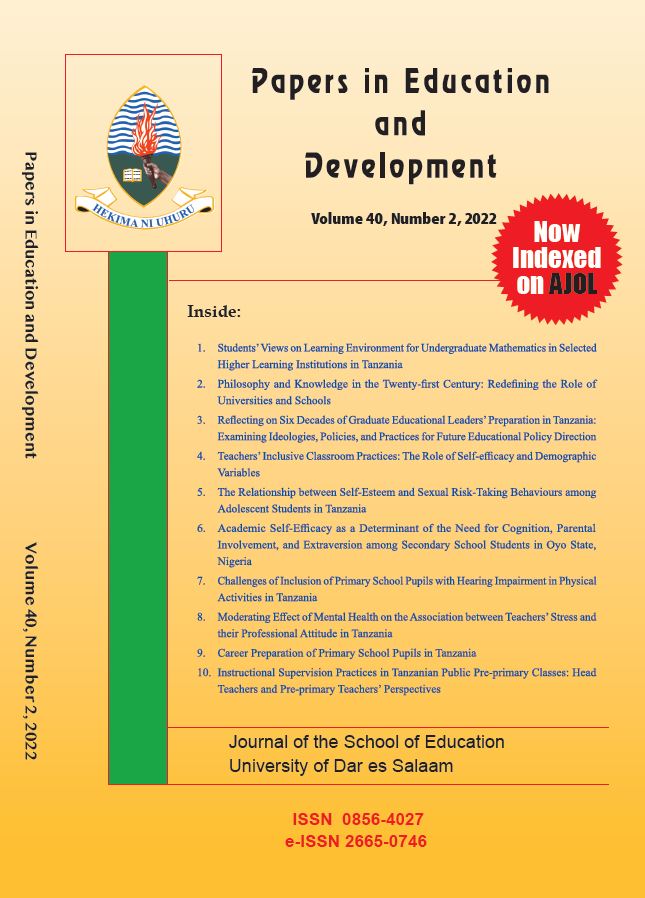Teachers’ Inclusive Classroom Practices: The Role of Self-efficacy and Demographic Variables
Abstract
The purpose of this quantitative, correlational study was to examine the role of teachers’self-efficacy and demographic variables during their inclusive practices. A structured
questionnaire was used in data collection. The sample of the study consisted of 254
in-service teachers from 18 inclusive primary schools in Tanzania. The study found
a statistically significant and positive relationship between teacher self-efficacy and
their inclusive practices. Regression analysis indicated that teachers’ self-efficacy,
particularly in instructional practices, as well as teacher demographics (except gender,
age, and education) were considered to be significant factors that predict their inclusive
practices. Thus, the study recommends for educational interventions to promote teachers’
competence, self-confidence, knowledge, and skills in order to promote inclusive practices
in schools in Tanzania.
Keywords: Teacher self-efficacy, inclusion, inclusive education, student
with disabilities, and inclusive classroom practices
Downloads
Published
2023-01-23
How to Cite
Omoro, M. O., & Possi, M. A. (2023). Teachers’ Inclusive Classroom Practices: The Role of Self-efficacy and Demographic Variables. Papers in Education and Development, 40(2). Retrieved from http://elearning.ucc.co.tz/index.php/ped/article/view/5466
Issue
Section
Articles

